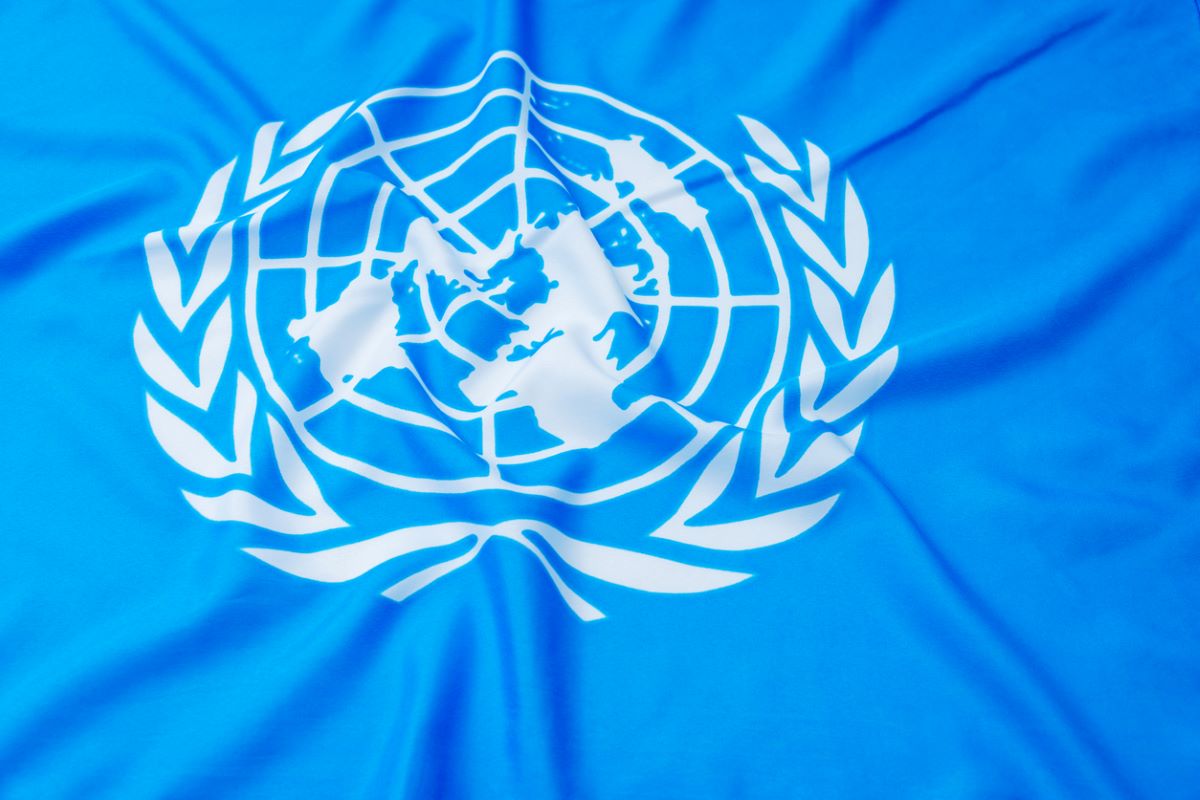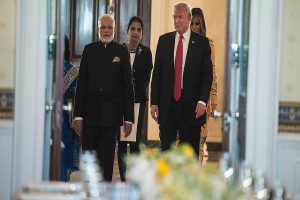The United Nations was created in 1945, following the devastation of the Second World War, with one central mission: the maintenance of international peace and security.
The UN has four instruments to accomplish the mission: a) preventing conflict (preventive diplomacy and mediation); b) helping parties in conflict to make peace (peace-making); c) deploying peacekeepers (peacekeeping) and d) creating conditions to allow peace to hold and flourish (peace-building). These activities sometimes overlap and should reinforce one another to be effective. This article is about UN’s role in peacekeeping. The origin of UN peacekeeping lies in the first Arab-Israeli war (1948-49).
Advertisement
The war began when Israel declared itself an independent state following the United Nations’ partition of Palestine. Protesting this move, five Arab countries ~ Egypt, Iraq, Jordan, Lebanon and Syria ~ attacked Israel. The conflict ended with Israel gaining considerable territory. While not specifically envisaged in the Charter, the United Nations pioneered peacekeeping in 1948 with the establishment of the UN Truce Supervision Organisation in the Middle East to observe and maintain the ceasefire.
Since then, the UN peacekeepers have taken part in 72 missions around the world of which 12 continue today. UN peacekeeping is the largest and most visible representation of the United Nations. Peacekeeping operations under the UN add to their legitimacy and limit the implications for the host country’s sovereignty.
Peacekeepers from outside a conflict open doors that would otherwise remain closed for collective peace efforts. Peacekeeping prevents the resumption of fighting following a conflict. It does not address the underlying causes of violence, nor does it work to create societal change, as peace-building does. Peacekeeping strives to create conditions that favour lasting peace. The UN peacekeeping force as a whole received the Nobel Peace Prize in 1988.
Egil Aarvik, Chairman of the Norwegian Nobel Committee in his award ceremony speech stated, “The award of the Nobel Peace Prize to the United Nations Peacekeeping Forces is unfortunately a reminder to us that peace is not a matter of course here in our world. Peace has to be actively protected and this protection has its price. 733 young people have sacrificed their lives in the service of the particular form of peacekeeping which is under consideration here.
We invoke peace on the memory of these young people in a spirit of thankfulness and deep respect. For the first time in history, the Peace Prize is to be awarded today to an organisation which, at least in part, consists of military forces. It might be reasonable to ask whether this is in fact in direct contradiction to the whole idea of the Peace Prize. The fact that this question has not been raised is an indication that it is universally accepted that the United Nations Peacekeeping Forces are in the spirit of the Peace Prize”.
The Cold War era made peacekeeping agreements extremely difficult due to the division of the world into hostile camps. During the first Arab-Israeli war, the Security Council was unable to act because of a veto from two of the permanent member states. The “uniting for peace resolution” gave the General Assembly the power to intervene as the Security Council was unable to act in spite of a threat to world peace.
After the end of the Cold War, there were renewed calls for the UN to become the agency for achieving world peace. The UN’s peacekeeping dramatically increased, authorising more missions in the late 1990s than in the previous 45 years combined. Now, peacekeeping operations and their deployment are authorised by the Security Council with the consent of the host governments.
The soldiers in peacekeeping forces have weapons, but in most situations can use them only in self-defence. The UN has no military force of its own. The member states provide, on a voluntary basis, the personnel, equipment and logistics required for an operation. Member states carefully negotiate the terms of their participation including command and control arrangements and retain ultimate authority over their own military forces. Peacekeepers wear their country’s uniform. They are identified as peacekeepers only by a UN blue helmet or beret and a badge.
Between 1948 and 1988, the UN undertook 13 peacekeeping missions involving generally lightly armed troops from neutral countries other than the permanent members of the Security Council ~ most often Australia, Canada, Sweden, Norway, Finland, India, Ireland and Italy. This period was called first-generation peacekeeping.
The second-generation started with the end of the Cold War. Peacekeeping was developed to achieve multiple political and social objectives. These missions included troops from the permanent members of the Security Council also. In the 1990s, missions were undertaken in Cambodia (1991-93), the former Yugoslavia (1992- 95), Somalia (1992-95) and elsewhere. In the former Yugoslav province of Bosnia and Herzegovina, the Security Council created “safe areas” to protect the predominantly Bosniak (Bosnia Muslims) population from Serbian attacks and UN troops were authorised to defend the areas with force.
In each of these cases, the UN responded to threats to peace and security within states sometimes taking sides in domestic disputes due to dynamics of the situation and thus compromised its own neutrality. Between 1988 and 2000, more than 30 peacekeeping efforts were authorised and at their peak in 1993-94 more than 80,000 peacekeeping troops representing more than 70 countries were deployed on missions throughout the world.
In the first years of the 21st century, annual UN expenditure on peacekeeping operations exceeded US $2 billion.
(The writer is a former central civil service officer who retired from the Ministry of Defence)











